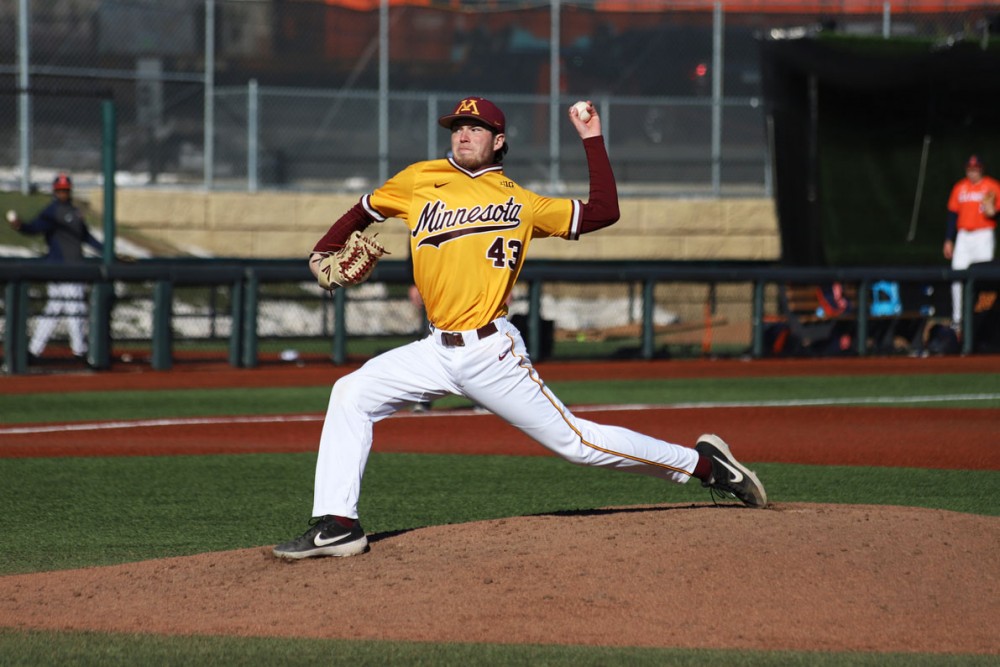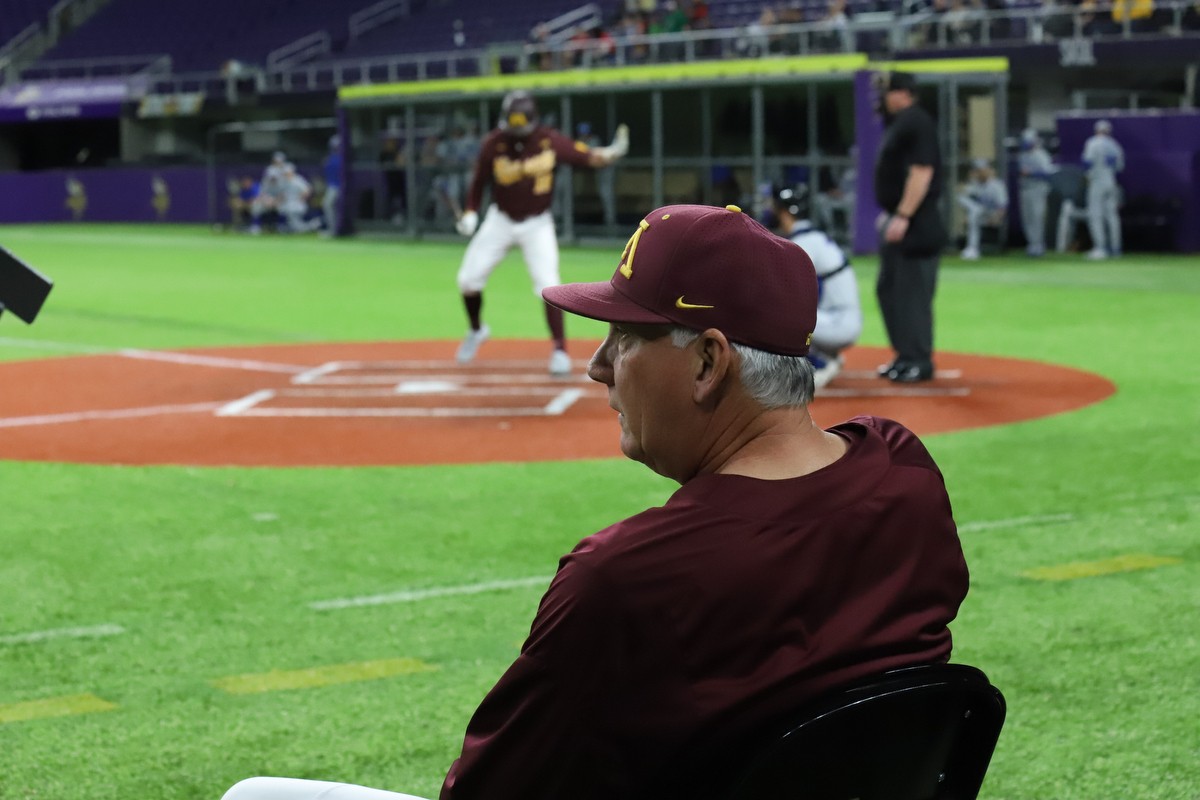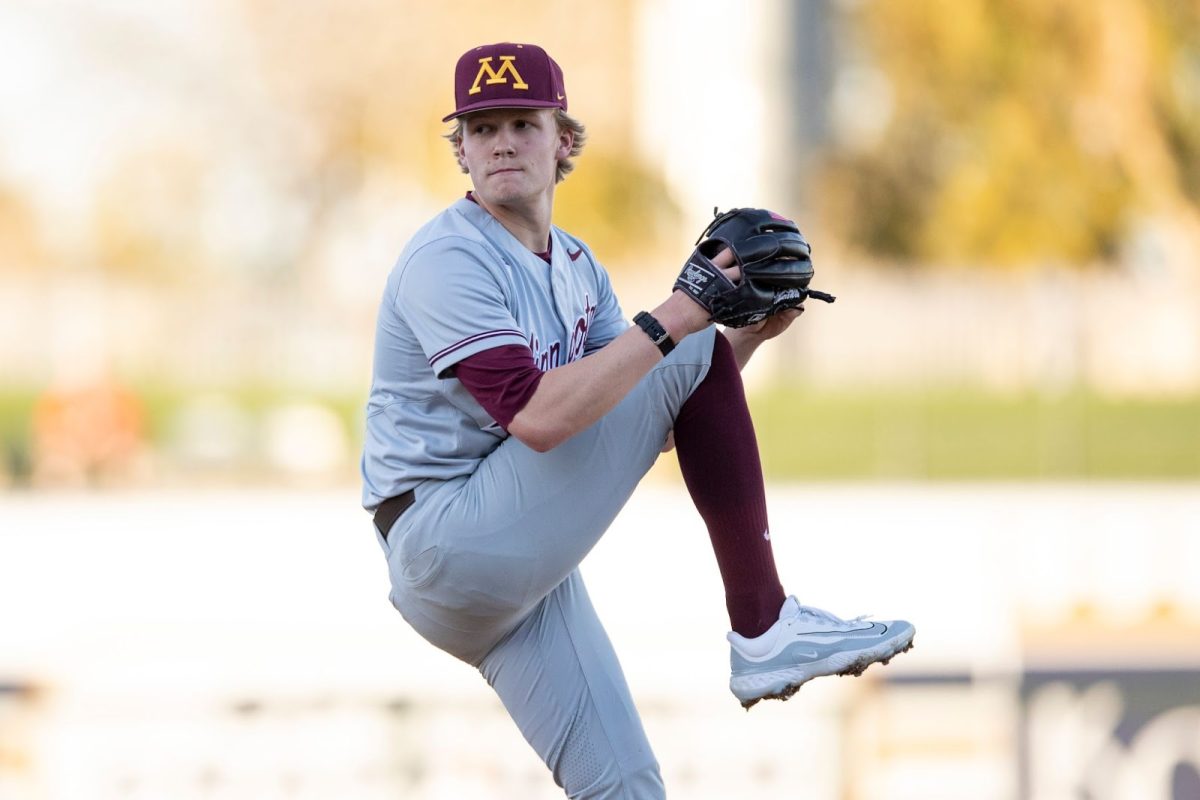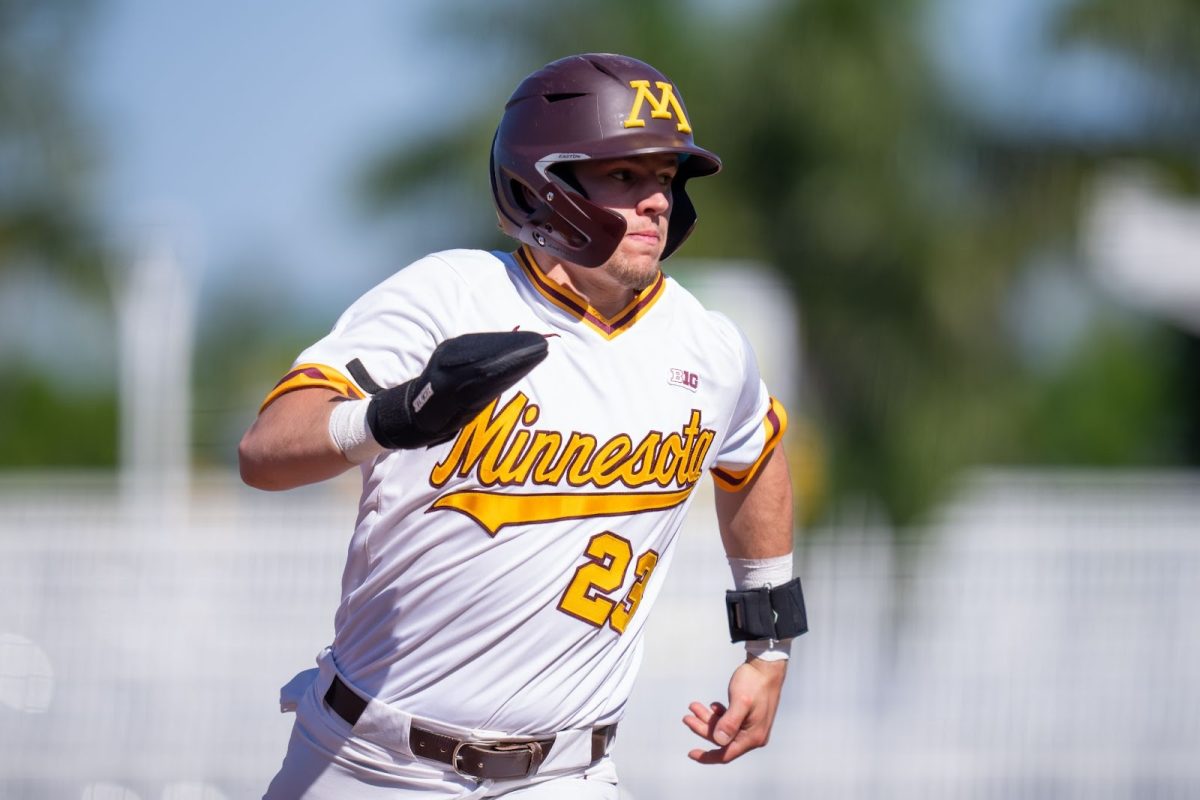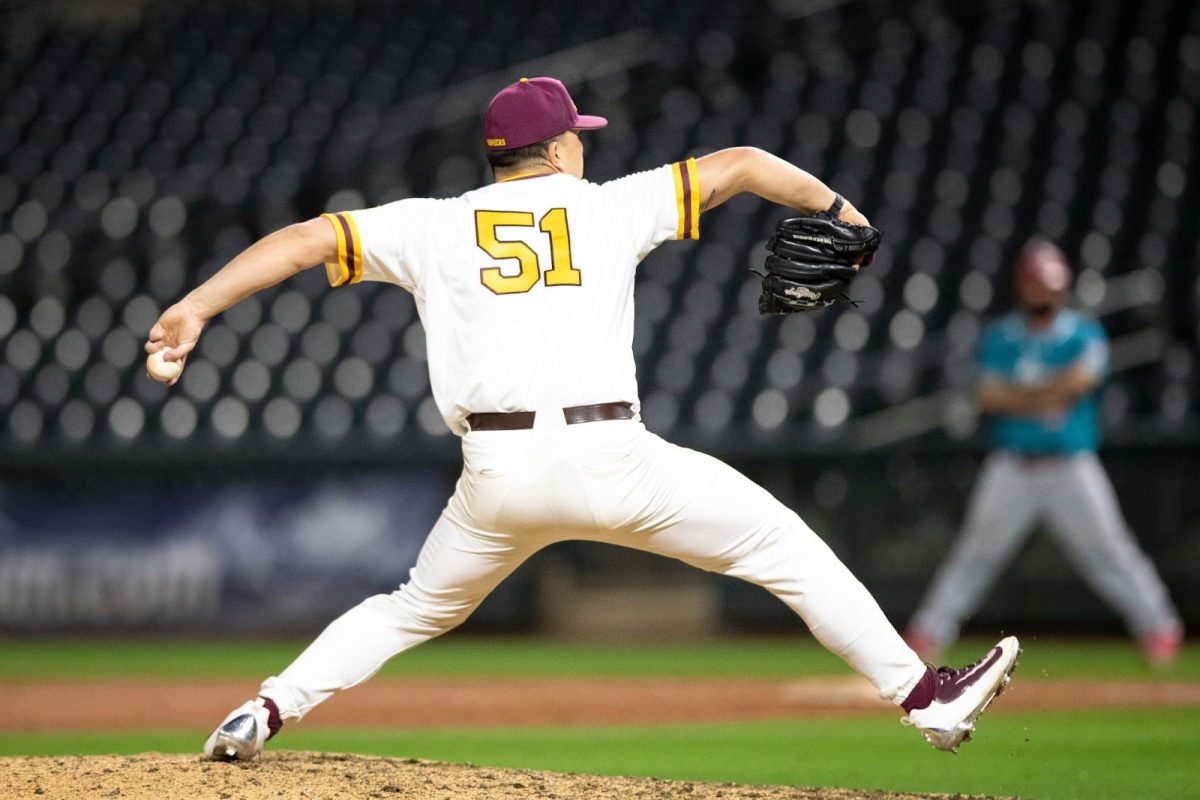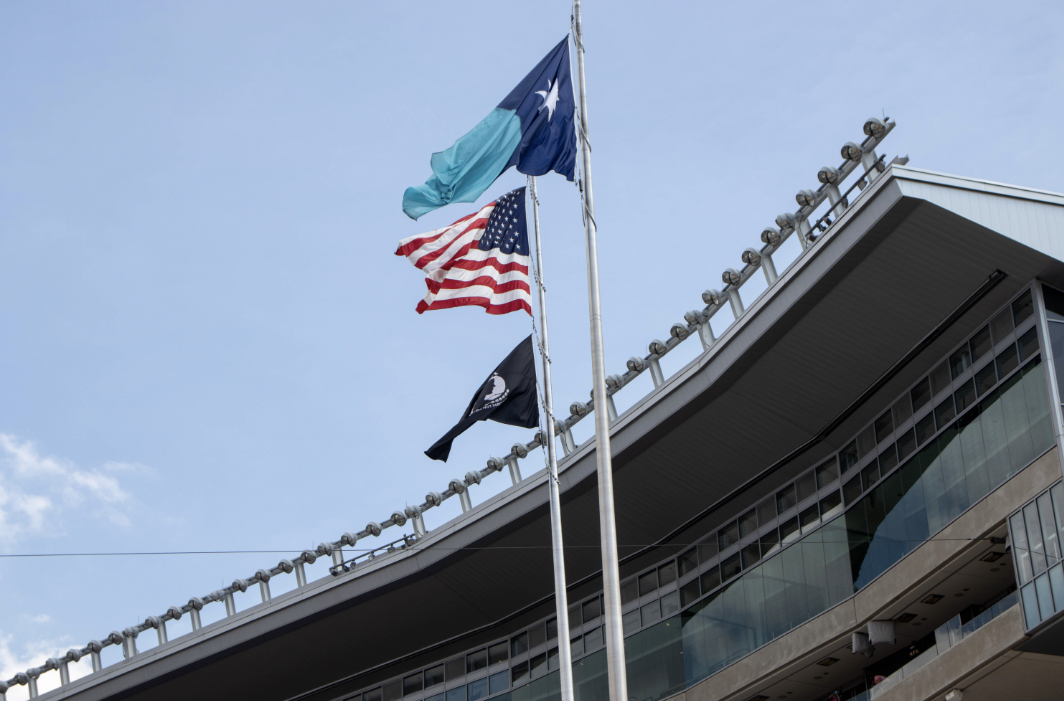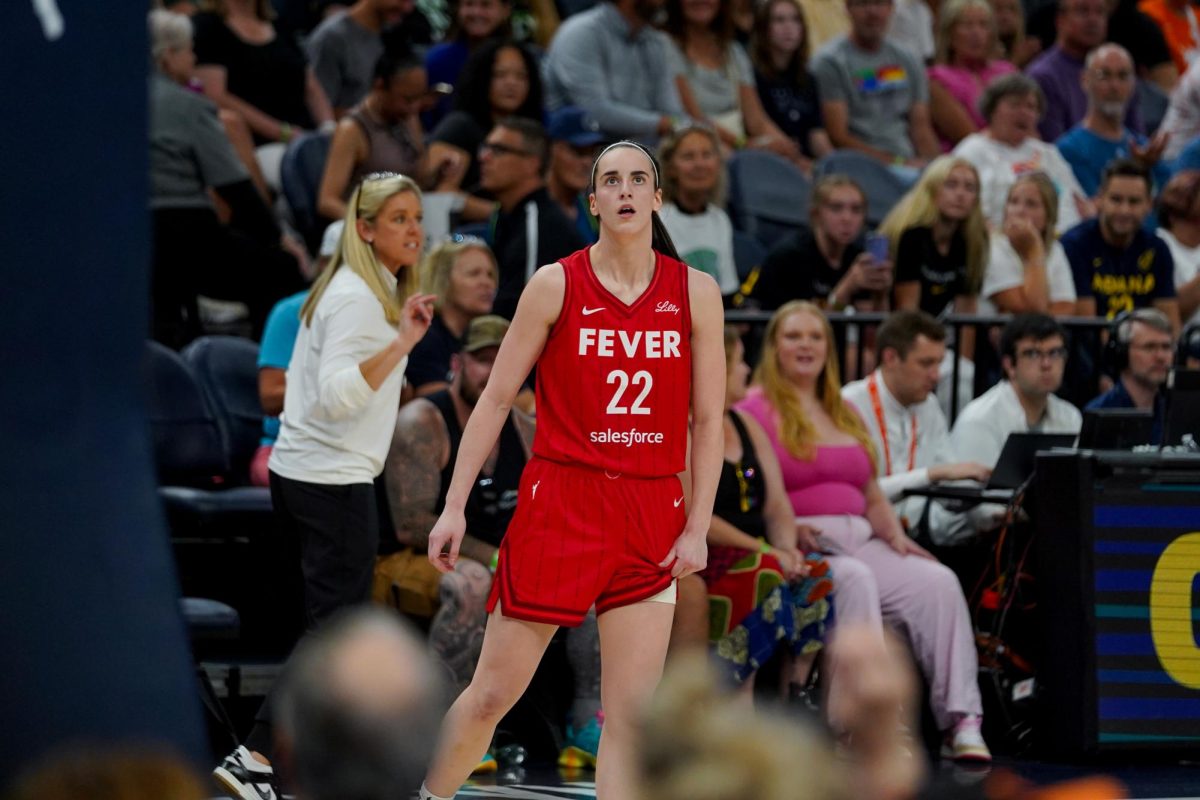Major League Baseball’s crackdown on pitchers using foreign substances to enhance performance could be coming to the NCAA as soon as 2023 when the new rule cycle begins, according to David Uyl, an NCAA umpire.
According to the NCAA rulebook, pitchers are prohibited from using foreign, sticky substances to alter the ball in any way. Like the MLB prior to their crackdown, it is a rule that is currently unenforced, but that is expected to change because of increased prevalence.
How it would be enforced is unclear, but given the prevalence and competitive advantage these substances provide, Uyl, a former MLB minor league umpire, said he expects they will be making their way from the professional level to the collegiate level in the near future.
“It takes a few years at the big-league level before it trickles down to the college game and might even make its way into the high school game. When kids that are 18-19 years old see it at the big-league level and on Sports Center, they want to try something that’s going to give them an advantage,” Uyl said. “It’s not been an issue, but I can see it becoming one in the next few years.”
Pitchers have used pine tar, a resinous substance that enhances grip on baseball bats, for decades, but the substance that accelerated this rule’s enforcement is Spider Tack.
Originally used by competitive weightlifters, this exceedingly sticky, gluelike substance can increase a pitches rotation speed by up to 500 RPMs, providing a massive advantage both in games and in recruiting, according to University of Minnesota pitching coach Ty McDevitt.
“Spin rates (RPMs) just go through the roof,” McDevitt said. “It has pretty significant draft implications too. You’re talking about scouts who look at these objective measures when they’re trying to decide whether they’re going to draft you in the 4th round or the 10th round, so it’s real stuff.”
It was not until the advent of Trackman Baseball’s pitch tracking technology in 2010 and 2011 that MLB teams made the connection between spin rate and pitch effectiveness, according to The Athletic. This resulted in a Spider Tack — and similar substances — ban from professional baseball, but it has thus far remained in an unenforced gray area for college teams like the Gophers.
With tracking technology, college teams can acquire exponentially more data on opposing pitchers as well, according to Uyl.
“If they’ve got two years of data on this guy and he suddenly increases his spin rate by 400 RPMs, it’s going to raise a red flag,” Uyl said. “Technology is only going to get better, and they’re going to have more and more data at their disposal.”
Uyl said it would not surprise him if the NCAA adds an amendment to the 2023 rules update mandating player check-ins at the opposing coach’s request. The difficulty of enforcing such a rule, he said, is umpires have reduced resources at the collegiate level compared to the MLB.
Ben Brownlee, assistant director of playing rules and officiating for the NCAA, said the size of their umpire crews does not currently support systematic checking for foreign substances.
Brownlee also said many of the teams in their member schools and conferences don’t have access to pitch-tracking technology. Unless a coach notices a pitcher is frequently touching the bill of his cap (a common place pitchers hide foreign substances) and requests it, or an umpire finds pine tar on a ball, they do not check.
“As of right now, there is no internal plan to change the rules,” Brownlee said. “We’re tracking it, but it’s not been a significant issue.”
As for the Gophers pitching program, McDevitt said he discourages any use of such substances. Not only because they are illegal, but he believes the enforcement of this rule is forthcoming.
The gray area, McDevitt said, is bags of rosin, which is legal and universally present on baseball mounds. Rosin is a sticky substance made from tree sap that helps keep pitchers’ hands dry and provides a tacky feeling to increase grip.
“Sunscreen, sweat, and rosin make a tremendously sticky substance,” McDevitt said. “Most people can get whatever they need out of that substance alone, and you’re talking about very legal applications. So, how would you enforce that?”
Former Gopher and current Milwaukee Brewer pitcher Aidan Maldonado said he believes the “sticky stuff” issue has been blown out of proportion. Maldonado trained with minor league and professional players before being drafted last summer, and he said it is not nearly as prevalent at the collegiate level as in the minors, where every advantage players can get is encouraged.
Maldonado said a number of college players use it, but few pitchers gain more than 200 RPMs and have a measurable advantage.
“You’re not going to see some average pitcher become elite because of it,” Maldonado said. “There’s maybe a one in a million scenario where it makes a minor league pitcher into a major league pitcher.”
Maldonado said the main thing it does for pitchers is give them better control.
“It’s dangerous if a guy is throwing 100 mph and doesn’t know where it’s going. When you use pine tar, your command goes up,” Maldonado said. “Hitting a baseball is the hardest thing to do in professional sports. I can throw four pitches in the zone with good command, and it’s hard to see four different pitches and put a barrel on it.”
Maldonado said he thinks enforcement of this rule will probably come to the college level, but the current policy is “don’t ask, don’t tell.”










